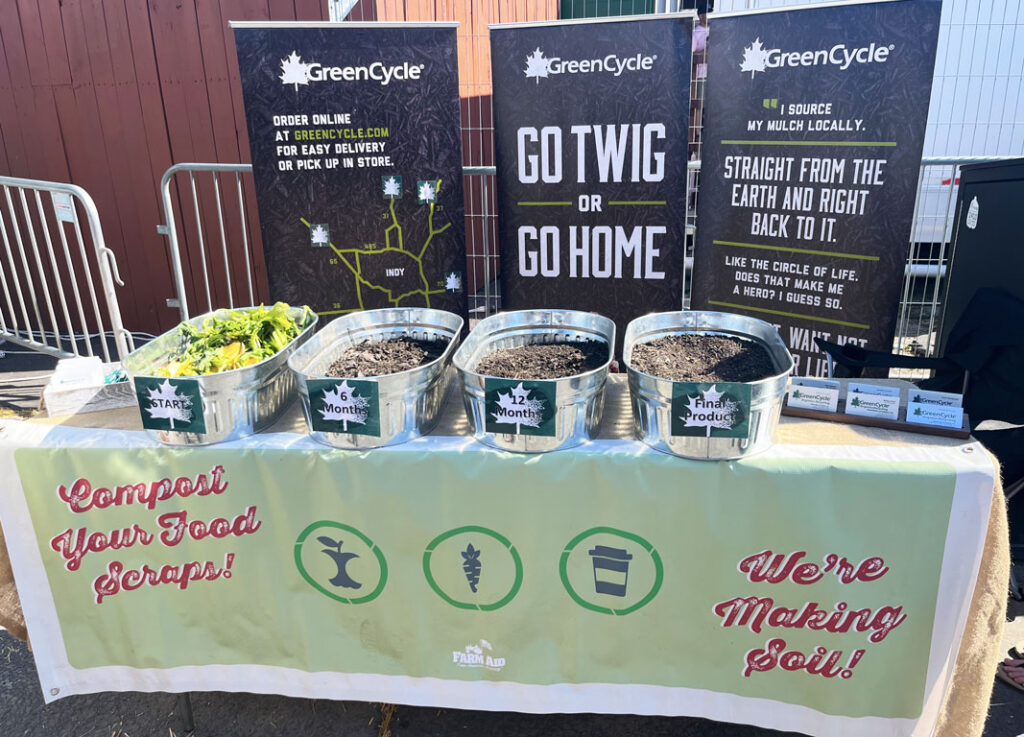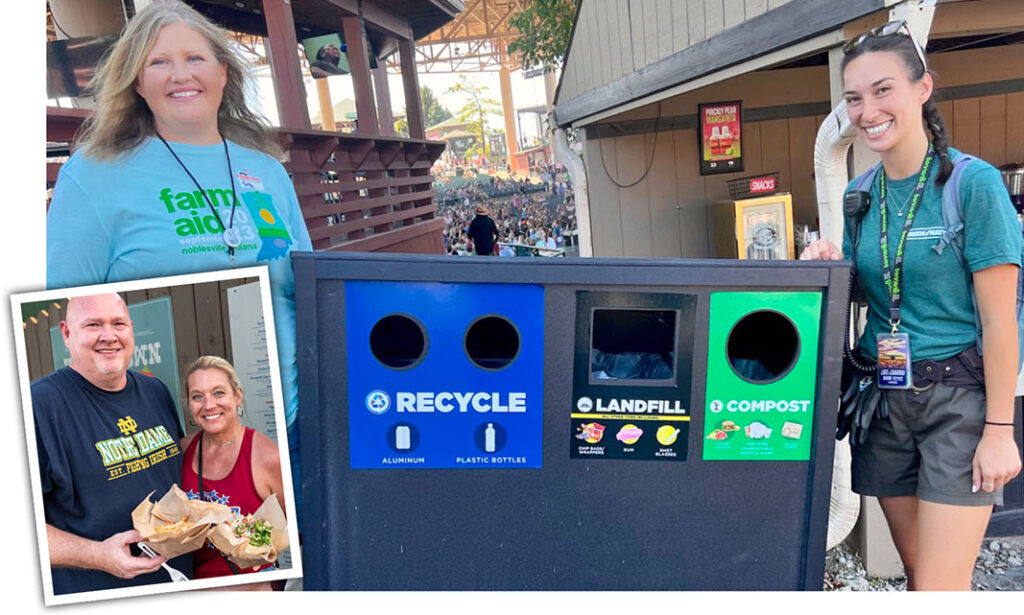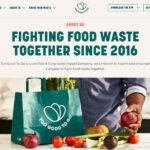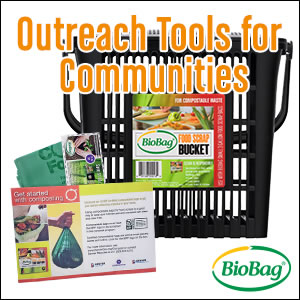Top: Performers on stage at Farm Aid 2023, held at the Ruoff Music Center in Noblesville, Indiana. Photo by Stephanie Katsaros.
Stephanie Katsaros
For over three decades, Farm Aid has worked unremittingly in support of family farmers. Each year, Farm Aid board members Willie Nelson, Neil Young, John Mellencamp, Dave Matthews and Margo Price host a festival to bring together a wide variety of artists, farmers and fans for one mission: keeping family farmers on the land. All artists donate their performance and cover their bands’ travel expenses. Farm Aid 2023 was held on September 23rd at Ruoff Music Center, owned by Live Nation, in Noblesville, Indiana, and included a nonstop flow of legendary musical collaborations. One of the biggest surprises was Bob Dylan’s return to the Farm Aid stage with the late Tom Petty’s backup band, the Heartbreakers. It was a fitting highlight performance, considering the roots of Farm Aid began at the Live Aid benefit concert in 1985, with Dylan making an onstage comment about helping America’s family farmers. This inspired Willie Nelson to promptly launch the first Farm Aid benefit concert in September 1985 in Champaign, Illinois, where Dylan was accompanied by Tom Petty and the Heartbreakers.
“Farm Aid is Earth Aid — this is a climate conversation,” said Neil Young at the Farm Aid 2023 press event, emphasizing the importance of how everyone plays a critical role in growing, buying, serving, eating and sharing food, and replenishing soil. “We are — or should be — in survival mode.” Dave Matthews took Young’s “Farm Aid Is Earth Aid” mantra one step further, not only encouraging the audience to support farmers who are replenishing the land instead of depleting it, but directly calling out the factory farm system as putting profit above the functionality of the land and our future.
Regeneration In Action
Farm Aid provides farmers the opportunity to learn from farmers. The festival features curated educational and culinary programming aimed at putting people in touch with the roots of their food, and who grows it. In Farm Aid’s HOMEGROWN Village, eaters, homesteaders, advocates, and activists visited booths and filled the skills tent for demonstrations such as ”Crimson and Clover Over and Over: Cover Cropping 101”. On the FarmYard Stage, musician Nathaniel Rateliff joined Greg Gunthorp, known for his succulent pigs and sustainable farming practices, and Illinois State Representative Sonya Harper, a lawmaker at the forefront of urban and rural agriculture equity. The way in which their relationships mutually inform one another exemplifies collaborations that are critical to driving systemic change in support of soil health, land stewardship, equity and representation. Farm Aid supports advancement of these initiatives with a multitude of organizations, such as the Intertribal Agricultural Council and The Federation of Southern Cooperatives.
Dan DeSutter of Hoosier Grassfed Beef noted during Farm Aid’s preshow press event how better managed land requires fewer inputs to make the soil functional — an economic driver and motivation towards more regenerative farming practices. In a conversation in the HOMEGROWN Village, Mike Lewis, a farmer from the National Center for Appropriate Technology’s ATTRA Sustainable Agriculture program, described his use of finished compost and how some farmers build their own spreaders in order to land apply compost. ATTRA’s website features hundreds of farmer-focused compost resources, including a guide, “How To Add Compost To Your Small Farm,” a tipsheet and a video.
Food Scraps Collection And Composting
Given the audience, focus, and scale of this 12-hour festival, diverting food scraps for composting is the primary way in which Farm Aid educates about composting. That’s in large part because special events are an ideal platform to implement food scraps diversion. Organizers have heard firsthand how exposure to the event’s composting program has planted the seed in the minds of attendees planning their own major events, conferences or even small social gatherings. Providing the benefit to learn about sustainable practices and how to do them is a quintessential example of the Farm Aid ethos.

GreenCycle, the composting operation that received the source separated organics from the day-long event, had an educational booth at Farm Aid 2023. Photo by Glenda Yoder, courtesy Farm Aid
“Composting back-of-house was always the norm for Farm Aid,” explains Culinary Director Sonya Dagvoitz. “Getting into concessions was a joyful challenge!” Key elements in the critical “pre-cycle” work she does to optimize front-of-house composting include outreach to food service directors, creation and distribution of a Farm Aid Vending Kit that clearly defines what vendors are allowed to buy and use at the event, and an Approved Suppliers List with precise ingredients for menu items, leading to learning opportunities and lasting relationships for food contractors and family farmers. Dagovitz dreams of a day when consumer product companies like food manufacturers are compelled to create “least waste packaging.” “For small items, compostable is really the only option,” she adds. Certified compostable plates, cups and cutlery were supplied by Eco-Products, in addition to serving trays and lids in backstage and VIP areas. Those large-form products have historically been a hard-to-source blind spot in zero waste catering operations.

Farm Aid attendees are served smaller food items in certified compostable food serviceware (inset; photo by Laurie Bonnneau, courtesy Farm Aid). Zero waste sorting station with Farm Aid volunteer (left) and Meredith Smith (right), Live Nation Sustainability Coordinator. Photo by Stephanie Katsaros.
Every year, scores of Farm Aid volunteers support composting and recycling education through their Green Team program, which is led by Anne and Derek Bedarf. Green Team volunteers were positioned at clusters of zero waste stations in the concession, VIP and artist catering areas, to interact and educate on how and why to compost and recycle, while preventing contamination at the point of disposal. Volunteer support added an extra layer of presorting prior to the venue’s methodical on-site sorting process. Sustainability crews from Live Nation venues in Indianapolis, Chicago, St. Louis, and Wisconsin joined the team at Ruoff Music Center to provide assistance, recognizing that waste volume would exceed the norm. After sorting and decontamination of the organics stream, Farm Aid 2023 achieved an impressive 82% waste diversion rate from landfill.
Live Nation’s Sustainability Team’s composting goals for Farm Aid 2023 were twofold: No contamination and a record-breaking quantity composted (the latter was not achieved). The first goal was practically achieved, with a “95% satisfaction” grade given by GreenCycle Noblesville, the composting facility that received the 60-cubic yard load (approximately 5,760 pounds). This achievement is significant given that Farm Aid sparked the Ruoff Music Center venue to collect and divert food scraps for the first time. GreenCycle considers Farm Aid its pilot venture into accepting and processing compostable serveware. Its prior experience was limited to a college game. Due to the low level of contamination, and post-event communication confirming that one of the questionable items was indeed certified compostable, Farm Aid marked the successful initiation of a growing stream of GreenCycle’s business.
Driving Industry Change
In 2018, Live Nation established its Green Nation Charter and made a commitment to achieve a series of environmental sustainability goals by 2030, including a 50% reduction in greenhouse gas emissions, a 50% (or higher) material recovery rate for all of its offices, venues and events, and minimizing the amount of food that goes to waste and making best use of composting facilities. Some of the sustainable practices put into place following that declaration were on display at Farm Aid 2023.
Live Nation coordinates sustainability at the corporate level, with Brett Blumberg leading strategy and implementation that includes aligned training and data input. Best practices are replicated across the venues Live Nation owns and operates in the United States, working closely with venue managers and their sustainability coordinators. Investment in venue infrastructure to sort and divert distinct waste streams was the impetus for recycling at Ruoff Music Center. Andrew Newport has worked at this amphitheater for 24 years, and is now General Manager and Regional Vice President of Operations. Last year, he strategized to further expand diversion resources at Ruoff, installing more compactors for different waste streams and a baler for aluminum, with a goal of decreasing the number of truck trips and associated emissions. The music center also intends to incorporate food scraps collection and composting into operations beginning next season.
It is a known reality that the best designed zero waste-to-landfill programs are only as good as the people who power them. “You have to want it on the ground level,” explains Newport, and it can be challenging to attract and retain staff for the demanding task of meticulously sorting waste to eliminate contaminants from recycling and organics streams. For this reason, he is strategizing ways to improve the staff’s workflow and experience, potentially by adjusting the timing of the sorts.
Legends Hospitality, Ruoff Music Center’s foodservice operator, contributes to the local community through its partnership with Second Helpings. This Farm Aid event alone resulted in donation of nearly 6,000 pounds of prepared and raw food, 9,000 pounds of nonperishables, and 1,200 pounds of certified compostable serveware.
While it is clear that Farm Aid is catalyzing shifts to good food purchasing and resource management, the teamwork between Live Nation, Farm Aid and the venue underpins achieving sustainability goals. “It is this combined cooperative purpose achieving change,” says Farm Aid’s Dagovitz.”
Stephanie Katsaros is the Founder and President of Bright Beat, a Chicago-based consultancy dedicated to advancing environmental stewardship and social change with venues, events, businesses, institutions, nonprofits, and municipalities. She has played a key role in the inception and leadership of the Illinois Food Scrap & Composting Coalition, Wasted Food Action Alliance, and Chicago Sustainability Task Force.













